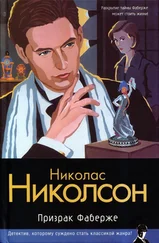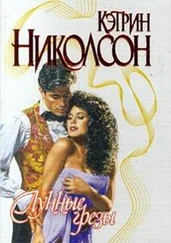‘You want to see Kitty.’
‘That’s different. Anyway, she won’t be back till this evening. What do I do till then?’
‘You could always help Arthur get his hay in.’
This is not a serious suggestion, but rather to Larry’s surprise his friend seizes on it eagerly. He goes back to the farmhouse and reappears a little later pulling a light hay cart.
‘Arthur says I’ll make a mess of it,’ he says, ‘but it doesn’t matter as it’s ruined already.’
‘Rather you than me,’ says Larry.
Ed strips to the waist, takes a long-handled rake out of the cart, and proceeds to gather the lying hay into mounds. Larry looks round from his painting from time to time, expecting to see his friend leaning on his rake, but Ed never stops. His lean, tight-muscled body gleams with sweat as he works, keeping up a pace no overseer would ever demand. As he forms the hay into knee-high piles he drags the cart alongside and hoists the hay into it. With each lift he emits a short low grunt of effort.
Larry’s attention is on the line of trees before him, and the rise of land that culminates in the round prominence that is Mount Caburn. His brush, moving rapidly, is reducing the scene to its essential elements, in which land and sky are masses of equal weight, the one cupped into the other. The flanks of the hill meet the dull sunlight at different angles, forming elongated triangles of different tones. He works with browns and reds and yellows, applying paint in rough dabs, hurrying to capture the ever-changing light.
When he next pays attention to his friend, he finds the hay cart is piled high.
‘My God!’ he exclaims. ‘You must be exhausted. Give yourself a break, for heaven’s sake.’
‘Just getting into my stride,’ says Ed, tossing another forkful of hay over the high hurdle side of the cart.
Larry watches him for a few moments, awed by his relentless self-discipline. For a man who wants to do nothing he has a remarkable capacity for work.
‘You know what it’s called, doing what you’re doing?’
‘What?’ says Ed, never ceasing in his work.
‘It’s called doing penance. You’re paying for your sins.’
‘Not me,’ says Ed. ‘That’s for you believers. I don’t have to pay for my sins. They come free.’
Larry laughs at that and goes back to his painting.
At midday Rex Dickinson appears, carrying a basket.
‘The good Mary has taken pity on you,’ he says.
The three of them settle down in the shadow of the hay cart and eat bread and cheese and drink cider. Larry looks at Ed sitting sprawled on the hay-strewn earth, breathing slow deep breaths, chewing the thick home-made bread, sweat drying on his face and shoulders.
‘You look like a handsome healthy animal,’ he says.
‘That’s all I want to be,’ says Ed.
Rex goes over to look at Larry’s painting.
‘Very Cézanne,’ he says.
‘I don’t know why I bother,’ says Larry. ‘It’s all been done before, and better.’
Rex looks round the silent landscape.
‘You’d hardly know there’s a war on.’
‘I love war,’ says Ed.
‘That’s because you’re a romantic,’ says Larry. ‘Half in love with easeful death.’
‘That’s rather good.’
‘Not me. Keats.’
‘As far as I’m concerned,’ says Ed, ‘I’ll be dead by Christmas. And that’s just fine. Once you make up your mind to it, everything tastes and smells so much better.’
Larry frowns, unsure whether or not to believe him.
‘But what about Kitty?’ he says.
‘What about her?’
‘I thought you loved her.’
‘Oh, Lord, I don’t know.’ Ed stretches himself out full length on the ground. ‘What kind of future can I offer a girl?’
‘Have you told her you’re planning on being dead by Christmas?’
‘She doesn’t believe me. She says that if she loves me enough I won’t be killed.’
‘She’s right,’ says Larry. ‘When you love someone, you can’t believe they’ll ever die.’
‘I believe we’re all going to die,’ says Ed. ‘I suppose that means I don’t love anyone.’
‘Kitty thinks you love her.’
‘Well, I do.’
‘You just say the first thing that comes into your head, don’t you?’
Ed rolls over and shades his eyes with one hand so he can gaze at Larry.
‘We’ve known each other a long time,’ he says. ‘We don’t have to piss about saying polite nothings, do we? We can be pretty straight with each other, I’d say.’
‘I go along with that.’
‘The thing is, Larry, I think you genuinely are a good chap. One of the very few I know. But I’m not a good chap. I live in what you might call the outer darkness. I really do. I’m not proud of it. What I see when I look ahead is darkness. I know you think I’m just being selfish. But I do love Kitty, and I ask myself if it’s fair to drag her into that dark place.’
Larry realises now what it is his friend wants from him. He loves him for it, even as he feels the sad weight of it fall upon him.
‘What is this, Ed? You want some kind of blessing from me?’
‘Maybe I do.’
‘All you owe her is your love,’ he says.
‘What about the darkness?’
‘It’s not your private darkness.’
He speaks so softly that Ed doesn’t hear him.
‘What’s that?’
‘It’s not your private darkness,’ he says again, louder.
Ed stares at him.
‘We all have to face it,’ says Larry. ‘Kitty too. She’s not a child.’
Ed goes on staring at him.
‘The war won’t go on for ever,’ says Rex.
Larry returns to his painting. His brush moves more quickly now, applying paint in bolder strokes. Above the hill the sun is burning through the layer of cloud, and in his painting the sky becomes charged with amber and gold.
Ed has had enough of haymaking. He puts one hand on Larry’s shoulder, squeezing it.
‘Thanks.’
‘What for?’
‘You know.’
Rex stays on after Ed has left them, mooching about the stream bank looking for butterflies.
‘You should study butterflies, Larry. Their colouring is just like a work of modern art. See there, that’s a Meadow Brown. A really common species. But on each brown wing there’s a patch of yellow, and in each patch of yellow there’s a black spot, like an eye.’
Larry goes on painting, but he’s grateful for Rex’s presence. He wants to talk.
‘What do you think about Ed and Kitty?’ he says.
‘Nothing, really,’ says Rex.
‘Do you think he’s right for her?’
‘I wouldn’t know. That’s rather up to her, isn’t it?’
Larry changes brushes, and mixes up a blob of blue with a touch of black. He wants the sky to be more dangerous.
‘Don’t you think he sounds odd about it all?’
‘He’s an odd fellow,’ says Rex.
He’s found another butterfly worthy of remark.
‘That’s a Chalkhill Blue. Isn’t he a beauty?’
Larry continues to pursue his line of thought.
‘You say it’s up to Kitty,’ he says, ‘which it is, of course. But she can only go on what’s on offer. And right now, that’s Ed.’
‘Oh, I get it,’ says Rex. ‘You want to make a bid.’
‘Do you think that’s wrong?’
‘It’s not morally wrong,’ says Rex. ‘I suppose it might be considered bad form.’
‘Well, that’s just it,’ says Larry. ‘If one chap announces he’s interested in a girl, does that mean he has some kind of rights over her? Does it mean everyone else has to keep off?’
Rex thinks about that.
‘I think the general idea is you back off while the first fellow takes his shot. Then if he misses, you take a pot.’
‘That’s what I thought,’ says Larry. ‘But listening to Ed today I started thinking maybe I’m being a bit feeble. As you say, it’s all up to Kitty.’
Читать дальше












